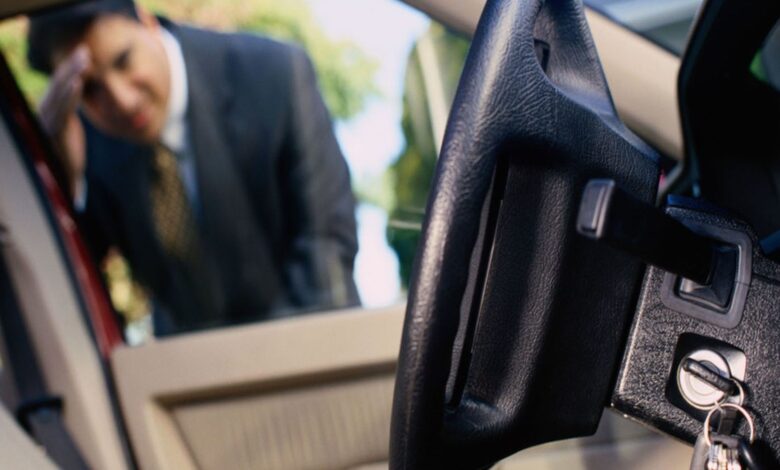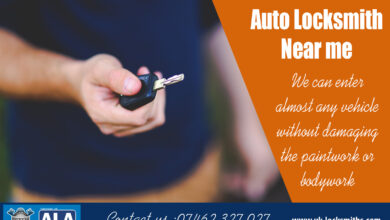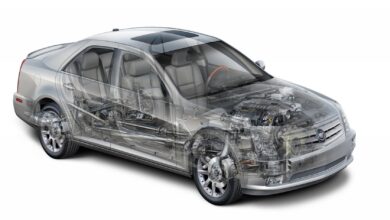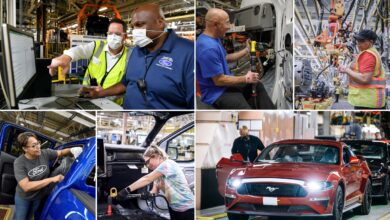Lost Your Keys? How Automotive Locksmith Save the Day

Automotive locksmith specialize in providing lock and key services for vehicles. The profession has existed for over 100 years, with its origins tracing back to the early days of the automobile industry. As cars became more prevalent, there was a growing need for professionals who could create replacement keys, program transponder keys, and assist drivers locked out of their vehicles.
Today, automotive locksmith use specialized tools and skills to perform a wide range of services related to vehicle locks and keys. Common services include making duplicate keys, extracting broken keys, opening locked vehicles, replacing locks, programming new transponder keys, installing and repairing ignition locks, and disabling anti-theft systems. They work on all types of cars, trucks, vans, motorcycles, RVs, boats, and other automotive lock and key systems. Their knowledge spans mechanical locks as well as modern keyless and remote entry systems.
Automotive locksmiths play an essential role in the auto industry by providing 24/7 emergency services to stranded drivers. They can quickly make on-site key replacements and unlock vehicle doors, saving customers time and money. Most automotive locksmiths are mobile, traveling in specially equipped work vehicles to customer locations for both scheduled appointments and emergency calls.
Common Services Provided
Automotive locksmiths provide a variety of services related to vehicle locks and keys. Some of the most common services include:
Lockout Assistance
One of the most frequent services an automotive locksmith provides is lockout assistance. This involves helping drivers who have locked their keys in their vehicle or somehow become locked out. The locksmith will use specialized tools and techniques to gain entry into the vehicle without damaging it. This often involves manipulating lock components, bypassing locks, or creating new keys.
Ignition Repair
Automotive locksmiths can repair issues with vehicle ignitions and ignition locks. For example, if an ignition is damaged or worn out, the locksmith can replace it. If the ignition lock cylinder is faulty, the locksmith can extract it and install a new cylinder. These repairs restore proper functionality to the ignition.
Key Replacement
Lost, broken, or worn out keys can be replaced by a locksmith. The locksmith can produce a new working key using the vehicle’s key code, which is usually retrieved from the door lock or a key database. High-security keys may require specialized equipment to duplicate.
Transponder Key Programming
Many modern vehicles use transponder (chip) keys which must be electronically programmed. Automotive locksmiths have the ability to program new transponder keys using diagnostic equipment. This allows the new key to start the vehicle’s ignition and prevents theft.
High-Security Key Cutting
For high-security keys, locksmiths use advanced key-cutting machines and software to produce properly cut keys. They have access to equipment and software needed for cutting and programming keys with complex transponders, sidewinder technology, laser cuts, and other modern security measures. This enables them to service high-security vehicle locks and keys.
Training and Certification
There are a few common paths to becoming an automotive locksmith. Many complete an apprenticeship or on-the-job training under an experienced locksmith. This allows them to gain hands-on experience and learn the intricacies of the trade. Apprenticeships generally last 3-4 years.
Some automotive locksmiths receive training through technical colleges or trade schools. These programs teach locksmithing skills and often lead to an associate’s degree or certificate. Coursework covers areas like lock installation, key cutting, lock picking, and programming electronic locks. Schools with locksmithing programs provide students with access to professional tools and equipment.
To work independently, locksmiths must obtain a license in most states. Licensure requires passing an exam that tests their knowledge and proficiency. The exam is administered by an oversight board or commission. Continuing education is usually needed to maintain the license over time.
Certifications are also available through professional associations. Organizations like the Associated Locksmiths of America (ALOA) offer certification programs that validate expertise. Common certifications for automotive locksmiths include Certified Automotive Locksmith (CAL) and Certified Registered Locksmith (CRL). These help locksmiths demonstrate their capabilities to customers.
Use of Lockpicking Skills
Lockpicking is an essential skill for automotive locksmiths, allowing them to gain entry to vehicles without causing damage. However, there are important legal and ethical considerations around utilizing lockpicking:
-
Lockpicking is primarily used when a driver has locked their keys in the car or lost their keys. The locksmith can pick the lock to gain access without forcing entry or smashing a window. This enables them to retrieve the keys or make new ones.
-
In some states, possession of lockpicking tools is illegal or requires a locksmith license. There are concerns about the potential for criminals to misuse the tools. Licensed locksmiths must follow regulations on owning and using lockpicks.
-
Locksmiths should only pick locks they have permission to access. It would be unethical and illegal to pick a lock without the owner’s authorization, even if just to demonstrate their skill.
-
There is an artistry involved in picking locks quickly and efficiently. Locksmiths take pride in their skills. However, they must balance that with responsible use of the tools.
-
Automotive locksmiths pick locks out of necessity to assist clients, not to show off or for illegal purposes. They focus on doing their job in a legal and ethical manner.
-
While lockpicking sounds intriguing, automotive locksmiths see it as simply a practical tool of the trade. Their priority is not on flaunting their skills but rather on providing quality service to customers.
Emergency Services
Automotive locksmiths provide 24/7 emergency services to help drivers who find themselves locked out of their vehicles or in other urgent situations. Some common emergency calls include:
-
Being locked out of a car with the keys inside. This often happens when drivers accidentally lock their keys in the car while it’s still running or with a child or pet inside. Automotive locksmiths can quickly respond and unlock the car without any damage to the vehicle.
-
Lost or stolen keys. If car keys are lost or stolen, a locksmith can create a new working key on the spot or disable the lost key fob so the car cannot be stolen. New keys can be cut and programmed in just minutes.
-
Ignition problems. Issues with the ignition switch or cylinder can prevent a car from starting. A locksmith can repair or replace the ignition components to get the car started again.
-
Broken or jammed locks. Locks can malfunction and become stuck, preventing access to the car. Locksmiths have the skills to open jammed locks and repair or replace any broken components.
For emergency calls, automotive locksmiths strive to respond as quickly as possible, usually within 30 minutes or less. This rapid response time minimizes the inconvenience and disruption for drivers locked out of their cars.
Pricing for emergency services is usually higher than standard rates due to the urgent nature of the work. Expect to pay a premium or additional fees for emergency lockout services, especially during nights and weekends. Locksmiths may charge minimum fees starting at around $50-$100 for emergency calls. Additional labor and parts will increase the total cost. Rekeying services and new key creation also cost more for emergency work.
Mobile Services
Automotive locksmiths often provide mobile services, dispatching locksmiths to customer locations for on-site assistance. This provides advantages over requiring customers to bring their vehicles into a shop.
Mobile locksmiths typically have a van or truck outfitted with the necessary tools and parts to service locks and keys. This mobile setup allows the locksmith to quickly travel to meet customers wherever needed. Common locations include home driveways, parking lots, workplaces, or roadside assistance calls.
The geographic coverage area may vary based on the size of the locksmith company. Single independent locksmiths may only serve a city or town, while larger companies can cover an entire metropolitan region. Some automotive locksmiths are willing to travel longer distances for emergency calls.
Providing mobile services allows automotive locksmiths to offer fast, convenient assistance. Customers appreciate the ability to have locksmith services dispatched directly to their location, saving them the hassle of transporting a vehicle to a shop.
Technology and Tools
As with many trades, automotive locksmiths rely on specialized tools and technology to efficiently perform their work. Some of the key pieces of equipment they use include:
-
Key-cutting machines – These automated machines cut new keys to match the cuts of an existing key. They contain a wide range of key blanks for all makes and models of vehicles. Advanced electronic key cutters can even cut more complex transponder keys.
-
Transponder programming tools – Many modern vehicle keys contain computer chips called transponders that communicate with the vehicle’s computer. Programming tools allow locksmiths to access the transponder chip and program new keys or erase lost keys from the car’s memory. This prevents lost keys from being used to start the vehicle.
-
Diagnostic devices – Handheld devices that plug into a vehicle’s OBD-II port provide diagnostics to help locksmiths determine issues. They can pull fault codes, access the immobilizer system, and assist with programming new keys.
-
Remotes and fobs – Locksmiths have equipment to program new keyless entry remotes and fobs to vehicles. This allows customers to use remote locking/unlocking if their original remote is lost or damaged.
-
Lockout tools – Tools like slim jims, door wedges, and lasso tools help gain entry when customers are locked out of their vehicles. Locksmiths have specialized tools to open car doors without damaging locks or vehicles.
-
Technology trends – Locksmiths are adopting more mobile apps and digital systems to improve efficiency. Key duplication kiosks and mobile transponder programming tools allow for faster on-site service. Biometric fingerprint scanning is also emerging for keyless ignition systems. Advanced technologies help automotive locksmiths provide more convenient services to customers.
Business Practices
Many automotive locksmiths are self-employed and run their own mobile locksmith business. This provides flexibility but also requires business savvy to succeed. Some locksmiths choose to work for an established automotive locksmith shop instead.
Self-Employment vs Working for a Shop
Self-employed locksmiths enjoy the freedom of setting their own schedule and being their own boss. However, they also take on more risk and have to handle all the business aspects like marketing, billing, taxes, etc. Those who work for a locksmith shop gain the benefits of established branding, marketing, and processes. But they lose some flexibility and have less control over their rates and hours.
Setting Rates and Fees
Independent locksmiths set their own rates for services. Industry standards, local competition, operating costs, and profit goals help determine pricing. Rates may vary by service, time of day, travel distance, vehicle type, and other factors. Locksmiths must find a balance between pricing competitively while still earning a good living. Discounts and promotions can help attract customers.
Marketing and Getting Customers
Customer acquisition is crucial but challenging when starting out. A strong online presence with a website, reviews, local listings, and search ads helps locksmiths stand out. Print ads, vehicle decals, networking, and referrals also aid marketing. Exceptional service and fair prices leading to word-of-mouth referrals is ideal. Partnering with auto shops, dealerships, or roadside assistance firms also provides customer leads.
Industry Trends and Innovations
The automotive locksmith industry has seen several notable trends and innovations in recent years. Some of the most impactful include:
Increased use of transponder keys – Transponder keys, also known as chip keys, have become standard in most modern vehicles. These high-security keys use an embedded microchip that communicates with the vehicle’s on-board computer. Automotive locksmiths must have the proper electronic equipment to program and cut transponder keys. This has become a major part of their business.
Adoption of mobile services – Many automotive locksmiths now offer mobile services, dispatching technicians in fully equipped vans. This allows for convenient on-location service for emergencies like being locked out of a vehicle. Mobile services have become a competitive advantage for locksmiths focused on customer convenience.
Integration of smart technology – Automotive locksmiths are integrating more smart technology into their services. This includes using smartphone apps to program digital keys, installing remote keyless entry systems, implementing biometric scanners for ignition switches, and more. Advanced diagnostics tools also help read computer codes for issues with locks and security systems. Technology integration helps locksmiths provide more comprehensive service.
Choosing an Automotive Locksmith
When selecting an automotive locksmith, you’ll want to find someone reputable, skilled, and affordable. Here are some tips for choosing a locksmith you can trust:
Tips for Selecting a Reputable Locksmith
-
Look for a locksmith that has been in business for several years in your local area. An established company is often a sign of a good reputation.
-
Make sure they are licensed and insured. Reputable locksmiths will be happy to provide proof if asked.
-
Search online reviews and check with the Better Business Bureau for feedback from past customers. Look out for consistently positive reviews.
-
Ask if they have certification from a locksmithing trade organization like ALOA (Associated Locksmiths of America). These help demonstrate extensive training.
-
See if they provide a physical location and place of business, not just mobile services. While mobile locksmiths are convenient, a shop can indicate stability.
-
Request an estimate or price quote before hiring them so there are no surprises. Avoid locksmiths who seem vague about pricing.
Questions to Ask a Potential Locksmith
-
How long have you been in business as a locksmith?
-
Are you licensed and insured for locksmith work? May I see your credentials?
-
Do you have any professional certifications or training?
-
Do you provide mobile services or have a shop location as well?
-
What types of automotive locksmith services do you offer?
-
Can you provide an estimate for the service I need before starting any work?
-
Do you have positive reviews from other customers I could see?
Red Flags to Watch Out For
-
No business license, certification, or proof of training when asked
-
Vague about pricing or tries to overcharge once on-site
-
Uses intimidating tactics or pressure to provide service
-
Arrives in an unmarked vehicle with no company information
-
Reluctant to provide identification or other credentials
-
Lack of established online presence or mostly negative reviews
By thoroughly vetting automotive locksmiths, you can find one you can rely on for quality service and fair pricing. Taking the time to research and ask questions will give you confidence you are in good hands.





